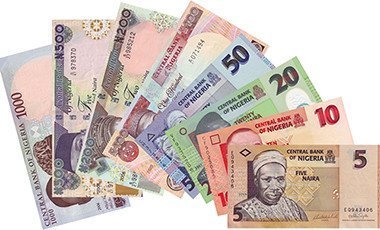Bank of America predicted that Nigeria’s local currency unit, the Naira, will weaken further after the 2023 general elections as its current exchange rate to the dollar is well above fair value.
Economist Tatonga Rusike said in a note to clients on Tuesday that three indicators—the widely used black market rate, the central bank’s real effective exchange rate, and “our own currency fair value analysis”—show the naira is 20% overvalued.
The Economist, Bank of America, and Sub-Saharan Africa’s Tatonga Rusike, listed three indicators that the naira would collapse.
“We see scope for it to weaken by an equivalent amount over the next six-nine months, taking it to as high as 520 per USD,” Rusike said.
The global lender said the local currency unit will weaken next year as its exchange rate to the dollar is well above fair value.
First is the widely-used black-market rate, the central bank’s real effective exchange rate, and “our own currency fair value analysis”, indicating that the naira is 20 per cent overvalued.
“We see scope for it to weaken by an equivalent amount over the next six-nine months, taking it to as high as 520 per USD,” Rusike said in a note to clients.
The bank said that while the naira will come under increasing pressure “due to limited government external borrowing,” devaluation is unlikely to happen until after the February 2023 presidential elections.
Africa’s largest economy operates a multiple exchange regime dominated by a tightly controlled official exchange rate and a parallel market where the currency is freely traded. Yesterday, the naira was exchanged at N440.95 to the dollar in the official spot market and about N731.46 in the parallel market.
BofA analysis shows that the official rate has depreciated by less than 10 percent since December 2021, while the parallel rate has been down by nearly a third within the same period, widening the gap to almost 70 percent.
“The greater the disparity with the official market, the higher the likelihood of increasing excess demand for foreign currency on the parallel market,” the bank said.
CBN Governor, Godwin Emefiele said Nigeria, like other emerging market countries and countries reliant on oil exports, the decline in crude oil earnings and the retreat by foreign portfolio investors significantly affected the supply of foreign exchange into Nigeria.
“With the decline in our foreign exchange earnings and successive exchange rate adjustments, the CBN has continued to implement a demand management framework, which is designed to bolster the production of items that can be produced in Nigeria, and aid conservation of our external reserves,” he said at a bankers’ meeting in Lagos.
Emefiele explained that due to the unprecedented nature of the shock, the apex bank had continued to favour a gradual liberalisation of the foreign exchange market to make smooth exchange rate volatility and mitigate the impact which, rapid changes in the exchange rate could have on key macro-economic variables.










